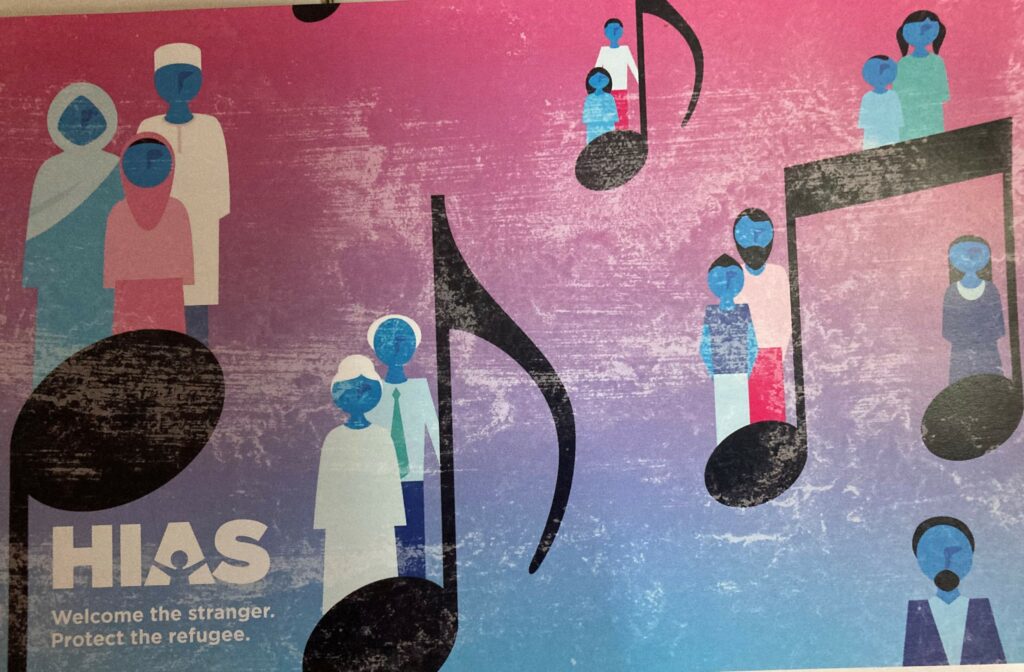Where are we in our year?
It’s August. You may be taking a well-deserved vacation. If not, if you’re at work, probably the end of the calendar year is looming. Your nonprofit may be planning end-of-year appeals: a Fall appeal, one just after Thanksgiving, and one in the very last week of December. Sound familiar?
It’s August 2024. It’s an election year. For your cause, or for you personally, Tuesday, November 5 may mark the most important day to remember (not Tuesday, December 31). A new administration could mean your organization loses its federal grants, you lose your own bodily autonomy, and/or our nation loses its proud history of rule by the people. The election year may the most significant to you.
But what about the year that’s beginning in only a few weeks: the school year? If you run a school or an afterschool program, of if you’re a parent of school-age children, you may be aware of the other two dates, but the first day of school is the one that’s impending.
We live in many calendars at once. That’s no surprise. It’s nothing new, and we are used to keeping those different new years in mind. So how difficult would it be to pay attention to other people’s new years?
Different calendars, different years
Christian
Whether we realize it or not, the Gregorian calendar that most of us use most of the time is based on a Christian cycle. It is named after Pope Gregory XIII, who put it into place back in 1582.
New Year’s Day, January 1, is eight days after the purported birthday of Jesus into a Jewish family. Jews circumcise boy babies on the eighth day, and that is why January 1 is the Feast of the Circumcision on many Christian holiday calendars. Christian countries’ military and economic predominance led to the Gregorian calendar being the shared calendar we use in secular spaces.
Muslim
But January 1 is not the start of a new year for Muslims. The Muslim New Year is on the first day of the month of Muharram, What’s that, you say? It’s the first month of the Muslim year, the same way that January–named after a pagan god who looked backward and forward at the same time–is the first month of the Gregorian calendar.
When is the first of Muharram? If you’re trying to find it on the Gregorian calendar, you’ll have to look for it on different dates. That’s because the Muslim calendar is a lunar calendar, with twelve months of about 29 days each, adding up to a 354-day year. The calendar most of us are used to is a solar calendar, with 365 days (366 in leap years).
So, the Islamic New Year has already occurred, on July 7, 2024 (the first day of Muharram in the year 1446). The next Islamic New Year will be on or about June 26, 2025–eleven days earlier on the Gregorian calendar than it was in 2024. And so on every year.
Jewish
You may think that Rosh Hashanah, the Jewish year, is always sometime in September, and wonder why “it keeps moving around” compared to the Gregorian calendar. But in 2024, Rosh Hashanah begins on the evening of Wednesday, October 2! Why?
The Jewish religious year doesn’t follow the sun only, like the Christian one, or the moon only, like the Muslim calendar. Instead, it’s luni-solar. A regular year has twelve months of 29 to 30 days each, just like the Muslim years. But because certain holidays HAVE to occur during certain seasons–Passover in the spring and Sukkot in the fall for instance–Jews add an entire leap month every so often.
This one of those thirteen-month years. In 2023, Rosh Hashanah began the evening of September 15. In 2024, Rosh Hashanah begins on the evening of Wednesday, October 2. In 2025, it will start the evening of September 22. All of those dates are the first of the Jewish month of Tishrei, no matter what the date is on the calendar most commonly used.
Many cultures, many years
You have probably heard of the Chinese New Year. Next year (the Year of the Snake) starts Wednesday, January 29, 2025. But that is not the only Asian new year celebration!
The Tibetan New Year (Losar) starts Friday, February 28.
The Cambodian New Year (Chaul Chnam Thmey) begins Monday, April 14.
A little further west, in Asia Minor, the Persian New Year (Nowruz) occurs on the spring equinox, which in 2025 will be Thursday, March 20.
Click here for a list of 26 Completely Different New Year’s Days Around the World!
Happy New Years! What do nonprofits do with them?
Taking note of when different years start for people you know is a sign of respect. Just knowing about Rosh Hashanah, Nowruz, or lunar new years will be a step in the right direction. But once you know there are so many different years, what do you do with that awareness?
At minimum, I’d suggest, you can wish employees, clients, supporters, etc., a happy new year in a culturally appropriate manner. For instance, a traditional greeting for the Jewish new year is “Shanah tovah,” which means “A good year.” (But please don’t wish me a happy Yom Kippur!)
 A step beyond that: start learning about the meaning of the new years and other holidays that your particular community observes, and what they do for those days. Children’s books are a good place to start. I recommend Two New Years, by Richard Ho, for a good introduction to Rosh Hashanah and lunar new years (and a valuable reminder that families can participate in more than one culture!).
A step beyond that: start learning about the meaning of the new years and other holidays that your particular community observes, and what they do for those days. Children’s books are a good place to start. I recommend Two New Years, by Richard Ho, for a good introduction to Rosh Hashanah and lunar new years (and a valuable reminder that families can participate in more than one culture!).
Please consider, too, whether your policies enable people to celebrate their new years and other holidays when those important dates aren’t part of the Gregorian calendar. If you provide two weeks of paid vacation to all employees but some of your employees have to use nearly all those days for religious or cultural observance, consider what you can do to make your nonprofit more welcoming, diverse, and inclusive.


